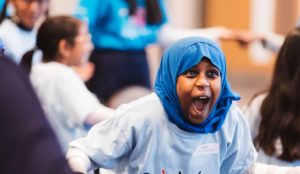Following the publication of the Youth Sport Trust’s Annual Girls Active Report, the Muslim Sports Foundation (MSF) welcomes this year’s findings, which highlight the urgent need to address intersectional barriers faced by girls in PE and school sport.
The 2025 report shines a light on how girls with multiple characteristics of inequality — such as those from low-income backgrounds, non-majority ethnicities, or those with special educational needs and disabilities (SEND) — are being left behind. These girls are less likely to enjoy PE, less confident in their abilities, and less likely to be active every day.
For many Muslim girls, these findings feel especially relevant. Cultural barriers, lack of inclusive provision, and underrepresentation in sport have long contributed to reduced participation and confidence. As a national organisation working to make sport accessible, welcoming, and empowering for Muslim communities, we recognise these challenges first-hand — and we are determined to be part of the solution.
At MSF, we believe that every girl deserves the chance to feel included, confident, and supported to be active — regardless of her background, faith, or personal circumstances. Through our community programmes, school partnerships, and advocacy work, we’re helping to create spaces where Muslim girls can thrive.
Our partnership with the Youth Sport Trust on the Girls Active initiative is part of a shared commitment to change the landscape of girls’ sport in the UK. Together, we’re working with schools and local authorities to promote inclusive PE environments, increase representation of Muslim women in sport leadership, and train educators on cultural awareness and faith-sensitive practice.
Intersectionality reminds us that inequality doesn’t exist in isolation. When gender intersects with race, religion, and socio-economic factors, the impact on access and confidence in sport is compounded. For Muslim girls, this can mean feeling invisible in PE lessons, lacking role models who look like them, or not having access to modest kit or private facilities that make participation comfortable.
The findings of the 2025 Girls Active Report are a call for collective action. We’re inviting schools, coaches, and policymakers to reflect on the barriers highlighted in this research and take practical steps toward more equitable participation.





